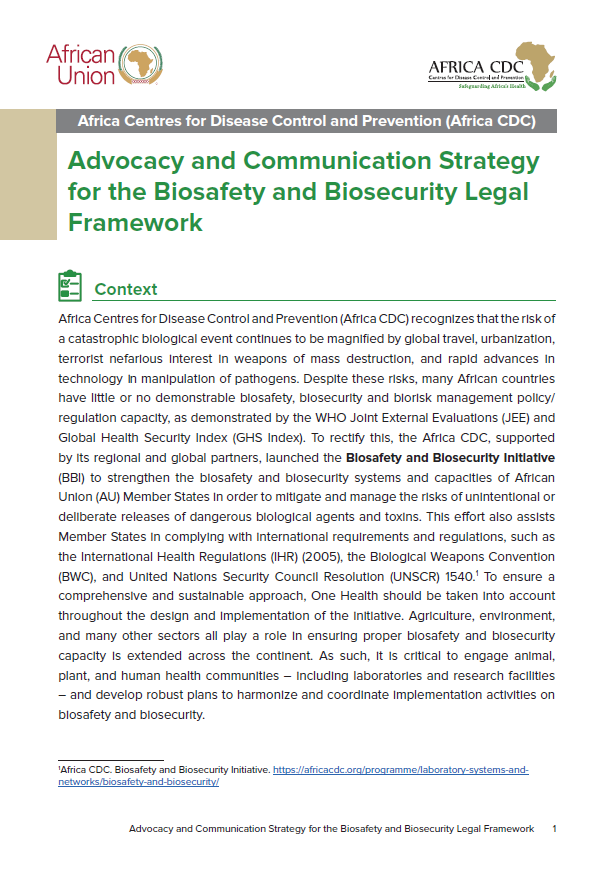Context
Africa Centres for Disease Control and Prevention (Africa CDC) recognizes that the risk of a catastrophic biological event continues to be magnified by global travel, urbanization, terrorist nefarious interest in weapons of mass destruction, and rapid advances in technology in manipulation of pathogens. Despite these risks, many African countries have little or no demonstrable biosafety, biosecurity and biorisk management policy/regulation capacity, as demonstrated by the WHO Joint External Evaluations (JEE) and Global Health Security Index (GHS Index). To rectify this, the Africa CDC, supported by its regional and global partners, launched the Biosafety and Biosecurity Initiative (BBI) to strengthen the biosafety and biosecurity systems and capacities of African Union (AU) Member States in order to mitigate and manage the risks of unintentional or deliberate releases of dangerous biological agents and toxins.
This effort also assists Member States in complying with international requirements and regulations, such as the International Health Regulations (IHR) (2005), the Biological Weapons Convention (BWC), and United Nations Security Council Resolution (UNSCR) 1540.
To ensure a comprehensive and sustainable approach, One Health should be taken into account throughout the design and implementation of the initiative. Agriculture, environment, and many other sectors all play a role in ensuring proper biosafety and biosecurity capacity is extended across the continent. As such, it is critical to engage animal, plant, and human health communities – including laboratories and research facilities – and develop robust plans to harmonize and coordinate implementation activities on biosafety and biosecurity.
